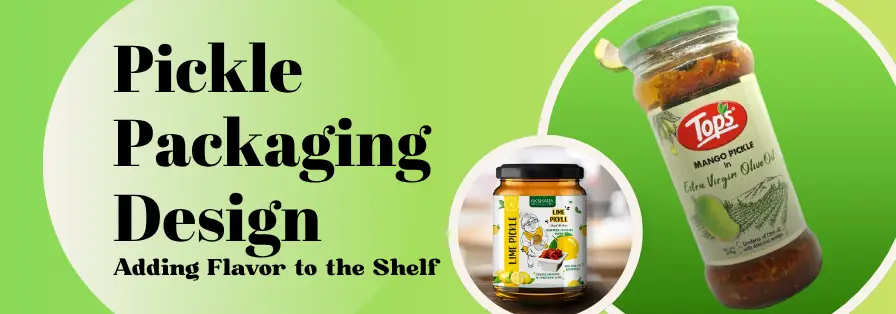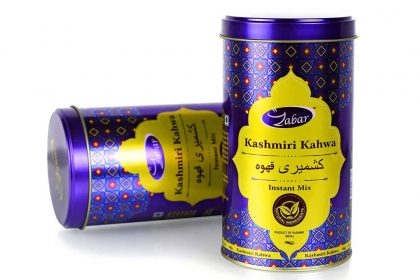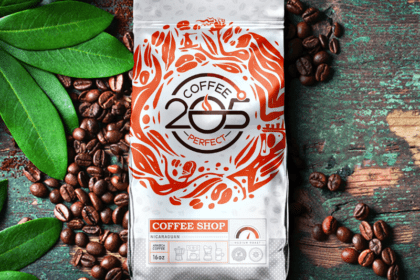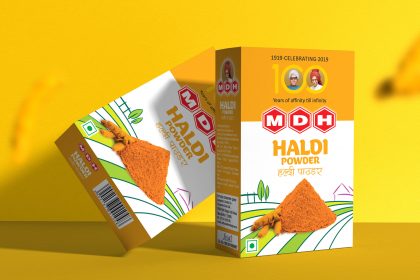Pickles are not just food. They are memories, family recipes, and that extra burst of taste that completes a meal. But when it comes to selling them in today’s busy market, the story is not only about the recipe—it’s about the packaging too. Pickle packaging design is where tradition meets creativity, and it decides if someone will even pick the jar or pouch from the shelf.
Why Pickle Packaging Design Matters
Pickles are everywhere—spicy mango, tangy lime, sweet-and-sour mixed, even exotic global ones. But they all fight for the same thing: attention. A good pickle packaging design does more than hold the product. It tells a story, keeps the flavors safe, and makes people trust the brand.
Consumers today don’t just buy pickles because they taste good. They want packaging that looks safe, clean, and modern, but still has that “homemade vibe.” This is where designers step in—to balance nostalgia with freshness.
The Role of Materials in Pickle Packaging
Glass Jars – Classic but Heavy
For years, glass jars have been the king of pickle packaging. They feel premium, show off the product, and keep flavors intact. But they’re heavy and fragile, which makes shipping tough.

Source: in.pinterest.com

Source: in.pinterest.com

Source: in.pinterest.com
Plastic Jars and Pouches
Lightweight plastics and flexible pouches are taking over because they’re cheaper, safer to transport, and easier for customers to handle. Many brands are also moving towards recyclable options, which makes the product more eco-friendly.
This material choice is the base of the whole design. Whether you’re aiming for luxury, budget, or eco-friendly, the material speaks first.

Source: in.pinterest.com

Source: in.pinterest.com
Design Elements That Work
Colors That Pop
Pickles are bold, so their packaging should be too. Bright reds, greens, and yellows are often used to show flavor, spice level, and freshness. But overdoing it can make it look messy. Minimal, focused colors with neat layouts often grab more eyes.
Fonts That Feel Authentic
Handwritten fonts or traditional Indian typefaces give a nostalgic touch. Clean, modern fonts add trust and clarity. Many brands mix both—heritage plus today.

Source: in.pinterest.com

Source: in.pinterest.com
Labels That Inform
Labels should not just look pretty; they must be clear. Ingredients, nutritional info, and storage details should be easy to read. Some brands even add serving suggestions to make the product feel more useful.

Source: in.pinterest.com

Source: in.pinterest.com
Adding Luxury in Pickle Packaging Design
Yes, luxury pickles exist! Think gourmet olive pickles, sun-dried tomato mixes, or Himalayan flavors. These don’t sit in the same jars as everyday mango pickles. They come in sleek glass bottles, matte labels, or even wooden caps. Gold foiling, pastel shades, and minimal layouts give them a premium look.
This is where packaging design connects with lifestyle—it’s not just food; it’s a gift-worthy product. Just like in oil packaging design, where premium bottles and metallic finishes highlight purity, luxury pickle packaging makes the product feel “worth more” before even tasting it.
How Tradition Shapes the Look
Pickles are deeply cultural. In India, a pickle jar reminds many people of their grandmother’s kitchen. In pickle business they might remind someone of a farmer’s market. Packaging design can bring these emotions alive. Using earthy tones, traditional patterns, or even old-style illustrations gives customers that emotional connection.
But it needs balance. If it looks too old-fashioned, people may not trust its safety. A mix of traditional cues with modern cleanliness is what works best.

Source: in.pinterest.com

Source: in.pinterest.com
Eco-Friendly Pickle Packaging
The world is changing, and so are consumer habits. Many buyers now check if packaging is recyclable or biodegradable. Eco-friendly pickle packaging is gaining attention, just like trends in salt packaging design, where earthy paper packs and compostable wrappers show care for the planet.
Brands using simple kraft paper labels, compostable pouches, or refillable jars create an image of honesty and responsibility. And yes, people do pay more for that.

Source: in.pinterest.com

Source: in.pinterest.com
What Designers Should Focus On
Shelf Impact
Pickles often sit next to colorful masalas and sauces. The packaging should be strong enough to stand out in that crowd.
Trust Factor
Food safety is key. Transparent windows, tamper-proof seals, and clean graphics make customers feel secure.
Storytelling
Packaging that tells a brand’s story—whether it’s a family recipe, regional specialty, or health angle—helps people connect and remember.
Final Thoughts
Pickle packaging design is more than wrapping food. It’s about holding culture, health, and trust in one place. Whether you go with a traditional glass jar, a modern eco pouch, or a luxury gourmet pack, the design decides how people see your product.
Just like oil packaging design uses purity cues and salt packaging design uses natural vibes, pickle packaging too should highlight freshness, safety, and the soul of the recipe. A good design doesn’t just sell pickles—it sells memories, stories, and trust.




